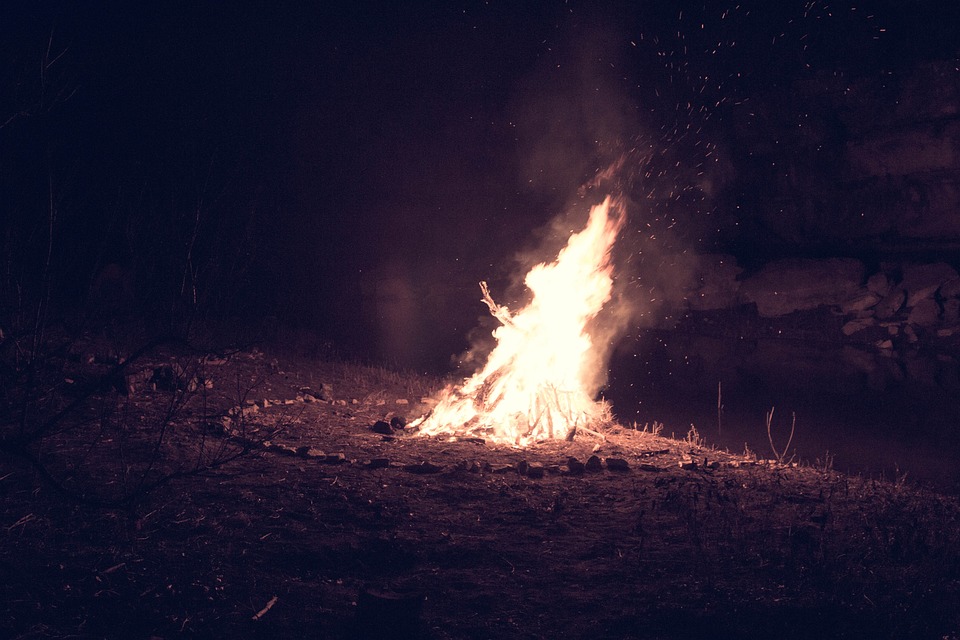Table of Contents
Introduction
Camping is a beloved outdoor activity that allows individuals to connect with nature and enjoy the serenity of the great outdoors.
While camping during mild or cool weather conditions is often the preferred choice, there is a unique charm and excitement that comes with hot weather camping.
Exploring under the sun can offer a range of benefits but also presents specific risks and challenges.
In this article, we will uncover the advantages and dangers of hot weather camping, providing insights to help you plan and enjoy your next adventure.
Benefits of Hot Weather Camping
Hot weather camping comes with its own set of advantages that make it an appealing experience for many outdoor enthusiasts:
Sunny Weather and Clear Skies: One of the most obvious benefits of camping in hot weather is the abundance of sunshine and clear skies.
This creates a picturesque setting, ideal for activities such as swimming, sunbathing, and stargazing.
Improved Mood and Happiness: Sunlight stimulates the production of serotonin, a hormone responsible for boosting mood and happiness.
Camping in hot weather allows you to soak up the sun’s rays, leading to an enhanced sense of well-being and relaxation.
Extended Daylight Hours: Longer days during the summer months provide additional time for outdoor exploration and enjoyment.
You can maximize your camping experience by taking advantage of the extended daylight hours to hike, fish, or simply immerse yourself in nature.
Vibrant Natural Surroundings: Hot weather encourages the growth and blossoming of colorful flowers and plants, resulting in vibrant and beautiful natural surroundings.
This creates a visually stunning environment that can be truly captivating.
Risks and Precautions
While hot weather camping offers numerous benefits, it is crucial to be aware of the risks and take appropriate precautions to ensure a safe and enjoyable experience:
Dehydration: High temperatures can cause rapid fluid loss, leading to dehydration.
It is essential to stay hydrated by drinking plenty of water and avoiding excessive intake of caffeine and alcohol.
Additionally, wearing lightweight and breathable clothing can aid in regulating body temperature.
Sunburns and Heat-Related Illnesses: Prolonged exposure to the sun can result in sunburns and heat-related illnesses such as heatstroke and heat exhaustion.
To prevent these, it is advisable to apply sunscreen with a high SPF, wear a hat and sunglasses, seek shade during the hottest hours of the day, and stay well-hydrated.
Insect Bites and Pests: Hot weather tends to attract insects and pests.
Protect yourself by using insect repellent, wearing long-sleeved shirts and long pants, and setting up appropriate barriers such as mosquito nets or screens around your camping area.
Increased Wildlife Activity: Animals, including snakes and insects, tend to be more active during hot weather.
Be cautious and aware of your surroundings, follow proper food storage guidelines, and avoid approaching or disturbing wildlife.
Tips for a Successful Hot Weather Camping Trip
Here are some valuable tips to ensure your hot weather camping trip goes smoothly:
Plan Your Activities: Take advantage of the cooler morning and evening hours for more strenuous activities and save the hotter parts of the day for relaxing or swimming in nearby bodies of water.
Choose Shade: When setting up your camping site, find a location with plenty of shade to provide relief from the sun’s heat.
Utilize natural shade from trees or use a canopy or shelter to create your own shade.
Stay Cool: Bring portable fans or misting devices to help you stay cool during the hottest parts of the day.
You can also wet towels or clothing to create a cooling effect on your body.
Lightweight Gear: Opt for lightweight and breathable camping gear to minimize discomfort and allow for better air circulation.
This includes clothing, sleeping bags, and tents specifically designed for hot weather conditions.
Familiarize Yourself with the Area: Research and learn about the camping area before your trip.
Familiarize yourself with potential hazards, available amenities, and emergency services in case of any unforeseen circumstances.
FAQs
Q: How can I protect myself from getting sunburned while camping in hot weather?
A: To protect yourself from sunburn, it is important to apply sunscreen with a high SPF and reapply regularly.
Wear a wide-brimmed hat, sunglasses, and lightweight, long-sleeved clothing to protect your skin from direct exposure to the sun’s rays.
Q: Should I be concerned about wildlife encounters during hot weather camping?
A: Wildlife activity tends to increase in hot weather, but encounters can be minimized by following proper food storage guidelines and maintaining distance from animals.
Be cautious, respect their natural habitat, and avoid approaching or feeding wild animals.
Q: Is it safe to swim in natural bodies of water during hot weather camping?
A: Swimming in natural bodies of water can be a refreshing way to cool off during hot weather camping.
However, it is important to follow safety guidelines, such as checking for any potential hazards, currents, or underwater obstacles before entering the water.
Additionally, ensure that you are a confident swimmer.




